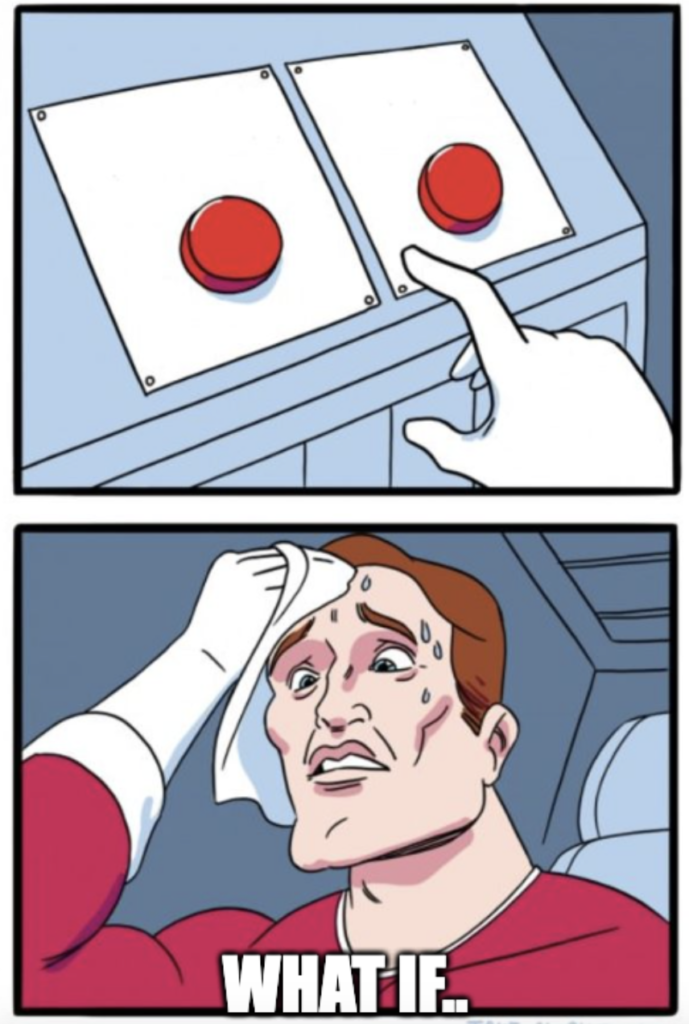Decision paralysis: The state of being unable to make a decision due to an overwhelming number of choices
Introduction
In today’s world, we are faced with more choices than ever before. From the products we buy to the jobs we take to the people we date, we have a seemingly endless array of options to choose from. However, this abundance of choices can also have a negative impact on our decision-making. A phenomenon known as decision paralysis can occur when we are presented with too many choices, making it difficult or impossible to make a decision at all.
What is decision paralysis?
Decision paralysis is a state of overload in which a person is presented with so many choices that they become unable to make a decision. This can be due to a number of factors, including the fear of making the wrong choice, the cognitive dissonance that can come from having to weigh too many options, and the simple exhaustion of trying to process all of the information available.
The negative consequences of having too many choices
Decision paralysis can have a number of negative consequences, both personally and professionally. It can lead to missed opportunities, increased stress, and decreased satisfaction with life
A few specific examples of the negative consequences of having too many choices:
- Missed opportunities: When we are faced with too many choices, we may become so overwhelmed that we procrastinate or simply give up on making a decision altogether. This can lead to us missing out on opportunities that we would have otherwise taken advantage of.
- Increased stress: Decision paralysis can be a major source of stress. When we are unable to make a decision, we may feel anxious, helpless, and overwhelmed. This stress can take a toll on our mental and physical health.
- Decreased satisfaction with life: Decision paralysis can also lead to decreased satisfaction with life. When we are constantly second-guessing our decisions and regretting the choices we have made, it can be difficult to cope
- Mental health problems: In severe cases, decision paralysis can even lead to mental health problems such as depression and anxiety. When we are unable to make decisions about even the smallest things, it can make it difficult to function in our daily lives.

How to overcome decision paralysis
There are a few things you can do to overcome decision paralysis:
- Be aware of the problem: The first step to overcoming decision paralysis is to be aware of the problem. Once you are aware that you are susceptible to decision paralysis, you can start to take steps to avoid it
- Limit your options: When you are faced with a lot of choices, try to limit your options to a more manageable number. This can be done by setting criteria for yourself or by asking for help from others.
- Set deadlines: When you are making a decision, give yourself a deadline to make a choice. This will help to prevent you from procrastinating or overthinking your decision.
- Trust your intuition: Sometimes, the best way to make a decision is to simply trust your intuition. Go with your gut feeling and don’t worry about making the wrong choice.
- Don’t be afraid to ask for help: If you are struggling to make a decision, don’t be afraid to ask for help from others. Talk to friends, family members, or a professional advisor.
- Break down big decisions into smaller ones: If a decision is too overwhelming, try breaking it down into smaller, more manageable decisions. This will make the process less daunting and more likely to lead to a positive outcome.
- Use decision-making tools: There are a number of decision-making tools that can help you to make better decisions. For example, you can use a decision matrix to weigh the pros and cons of different options
Some relatable real-life examples of decision paralysis
- A student who is unable to choose a major because they are overwhelmed by all of the options available to them.
- A person who is unable to choose a new car because they are worried about making the wrong choice.
- A couple who is unable to decide where to go on vacation because they have so many different ideas.
- A business owner who is unable to decide which new product to launch because they are worried about losing money.
Conclusion
All in all, Decision paralysis can have a negative impact on our lives. However, there are a number of things we can do to overcome it. By being aware of the problem, limiting our options, setting deadlines, trusting our intuition, and asking for help, we can make better decisions and enjoy more fulfilling days
